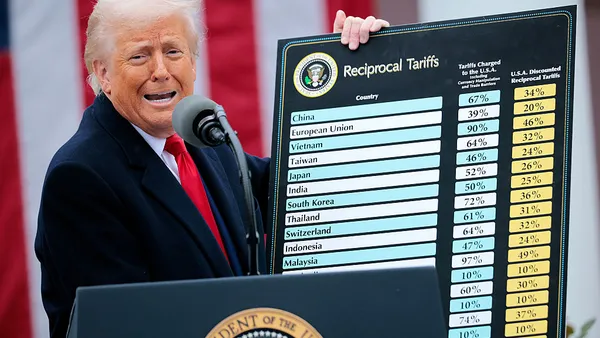Dive Brief:
- Almost half (47%) of chief marketing officers were women in 2020, a notable jump from 2018, when just 36% were women, according to the latest CMO Tenure Study from executive search firm Spencer Stuart. Fifty-two percent of incoming CMOs last year were women, the analysis of 100 of the most-advertised U.S. brands revealed.
- However, only 12% of CMOs in 2020's incoming class were racially or ethnically diverse, "a steep drop" from 19% in 2019, Spencer Stuart said. Among CMOs, 13% were from racially or ethnically diverse backgrounds in 2020 versus 14% in 2019.
- Uneven diversity figures came as the average CMO tenure dropped to 40 months last year, the lowest figure since 2009. Median tenure hit an all-time low of 25.5 months, though some of that decline could be attributed to the transition of long-time marketing executives.
Dive Insight:
A lack of diversity among CMOs has been a sticking point for the marketing industry for a long time, but the latest stats might read as particularly egregious following a year when many brands made a big show of improving representation. In the wake of mass protests for racial justice last summer, a deluge of brands came out in support of causes like Black Lives Matter while pledging to prioritize diverse hiring practices. Spencer Stuart's research suggests that racial and ethnic diversity in marketing leadership actually declined in 2020, even as strides were made in other areas like gender representation.
Spencer Stuart pointed to some noteworthy CMO hires and promotions outside of the companies analyzed for its study. Peloton — a big winner of the pandemic amid the spike in at-home fitness — last year named Dara Treseder, a Black woman, as head of global marketing and communications. Condé Nast notched Deirdre Findlay as global CMO at the start of 2020, although the media giant still had a controversial year for mishandling diversity and equal pay issues at publications such as Bon Appétit.
Beyond lingering diversity, equity and inclusion gaps, the CMO role remains incredibly volatile, having dropped to its lowest average tenure in over a decade in 2020. Some of the shakiness stemmed from the pandemic, according to Spencer Stuart. Many brands hit the brakes on marketing spending at the outset of the health crisis while paring down their teams. But that bumpiness didn't affect the C-suite equally, as CEOs saw their average tenure reach an all-time high of 80 months in 2020.
Spencer Stuart's latest study could provide some contrast to other CMO research that indicates that the position has been fortified by the crisis. In a recent whitepaper from M&C Saatchi Group's Clear consultancy, more than half of surveyed chief marketers reported their influence increased during the pandemic, while just 5% claimed it decreased. However, Clear identified a burnout problem, with less than one-fifth of surveyed senior marketers saying they aspire to move up to the CMO role.
Spencer Stuart found that 63% of companies promoted internal candidates to CMO last year. Eighty-four percent of first-time CMOs were internal hires versus 14% that were hired externally. Challenges with onboarding in a virtual environment and the need for immediate brand expertise in a fast-moving market likely helped drive these trends.
A recent study from executive recruiting firm Russell Reynolds Associates (RRA) suggested almost half (45%) of CMO appointments were women last year, a 5-percentage-point drop from the prior six months. RRA said brands face a "CMO succession crisis," with 84% of CMOs being hired externally — a stark contrast with Spencer Stuart's findings.















